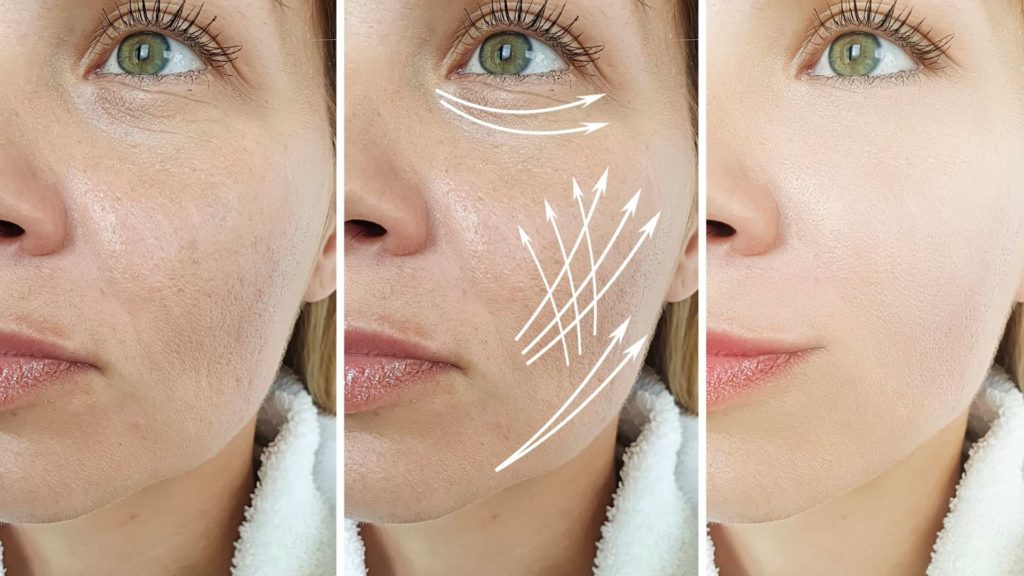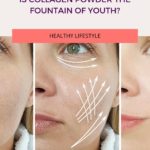Everywhere I turn, there is another ad about the magical powers of collagen powder supplements, but is collagen indeed the fountain of youth?
The simple answer is NO. Collagen powder is useless and harmful.
Let’s dive a little deeper. I want you to understand precisely why collagen powder supplements are a prophet agent of the big industries that do nothing to support your skin’s elasticity or the strength of your bones.
“One of the greatest mistakes in the medical industry today is the trend encouraging people to consume supplemental collagen, thinking that it will enter our digestive tract and miraculously find its way to our skin and connective tissue and fill in for human collagen.”
-Anthony William, Instagram Live
A Foreign Substance
The collagen powders on the market today are primarily made from animal collagen (some are plant-based), which means they are a foreign substance to our bodies. Therefore, the premise is that if you ingest this animal’s (or plant’s) collagen, it will help build your human collagen. Does this make sense to you?
Comparatively, it would be like saying that if you have poor eyesight, you should eat this desiccated animal eyeball to help heal your vision. Or, if you have trouble breathing, you should eat these animal lungs to help heal your lungs.
That is not how it works.
“Collagen is a critical aspect of the human body: it’s partially responsible for keeping our skin intact. It’s an important protein for connective tissue throughout the body. Without healthy collagen, we can show signs of aging quickly and we can weaken internally. This has nothing to do with consuming collagen. Rather, we need to build healthy collagen.”
-Anthony William, Instagram Live
Moreover, ingesting a foreign substance to augment your natural collagen gives the body more work. The body recognizes this animal product as a foreign substance and wants to eliminate it. In fact, collagen powder supplements never enter your bloodstream. The body eliminates it as waste.
Supplemental collagen turns into a very harmful waste in the intestinal tract.
Furthermore, any foreign collagen escaping the intestinal tract walls gets directed to the liver. Thus, putting more burden on the liver as it will have to sort and store this troublemaker.
Why is supplemental collagen so harmful?
When you ingest supplemental collagen, it becomes a fuel for the virus and bacteria cells we have living inside. Additionally, it diminishes productive bacteria and feeds unproductive bacteria. Viruses such as Epstein-Barr, shingles, HHV-6 – any unproductive herpetic viruses feed on supplemental collagen and other microbes such as fungus, yeast, and mold.
Supplemental collagen feeds these unproductive pathogens, helping them increase and expand their colonies.
Your collagen is weakened and breaks down throughout your body due to the amount of pathogenic material floating in your bloodstream and the level of toxicity within your liver (as I mentioned above, supplemental collagen contributes to liver toxicity).
How To Boost Your Collagen Production
A collagen supplement does not help your skin, joints, hair, and nails. Our bodies formulate and produce collagen internally through natural building blocks such as silica. The only way to boost your collagen production is to support your body’s natural collagen production process.
“The truth is that the collagen we rely on in our connective tissue and skin is created by nutrients that come from plant foods: leafy greens, fruits, and even tubers, rhizomes, and root vegetables. If we have a high toxic load, it becomes destructive to this process.”
-Anthony William, Instagram Live
Supplements To Boost Collagen
For your body to produce more collagen, you can take some helpful supplements. The best supplements to boost collagen production are B12, magnesium, calcium, and silica. You can find silica in nettle leaf, horsetail, lemon balm, dandelion root, and Organo Sciliplant.
Furthermore, silica is a critical building block. Many people don’t know that there are two different types of silica. One provides tremendous support for bone health. The other is incredible for your skin and is readily available in vegetables such as asparagus, artichokes, and kale stems.
Foods To Boost Collagen
One of the key ingredients your body needs to produce collagen is antioxidants. Antioxidants can are in fresh fruits and vegetables. To incorporate more antioxidants in your diet, try some recipes from my FREE resource, Let’s Get Wild With Wild Foods.
Some of the best foods to boost collagen due to their high levels of naturally occurring silica are melons, artichokes, asparagus, and leafy greens.
Moving Forward
Now that you understand the truth about collagen powder supplements, it’s time to move forward by incorporating productive, collagen-building foods and supplements into your diet. I know the marketing for collagen powders can be tempting but armed with truthful information, you can make informed purchasing decisions.
When you make adjustments to your diet that support collagen production, you are also making changes that will help heal chronic symptoms. There are no shortcuts; it’s all about what you put into your body.
To your health & happiness,
Muneeza






